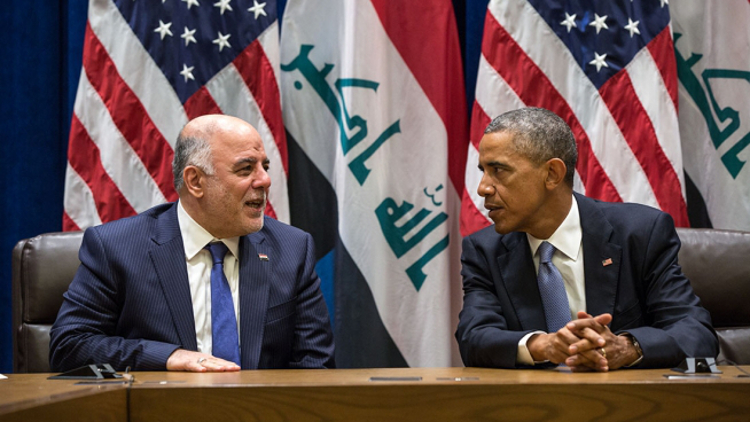Lost in President Barack Obama’s hour-long press conference following his party’s embarrassing defeat on Election Day Tuesday was an unsolicited offering that he’ll be seeking Congressional approval for a new version of the Authorization to Use Military Force Act to fight the Islamic State.
Obama’s request for a new AUMF comes three months after the US launched airstrikes against Islamic State positions in Iraq, and later in Syria. The Obama administration has used previous versions of the AUMF—one passed in 2001 and another in 2002—to justify the bombings. Left unanswered Wednesday was why a new version is necessary if the Obama administration already believes it has the authority to bomb Iraq and Syria under existing law.
“We do not believe the President needs that new authorization in order to take sustained action against ISIL,” a senior administration official said in a background call with reporters in September. “We believe that he can rely on the 2001 AUMF as statutory authority for the military airstrike operations he is directing against ISIL, for instance.”
Shortly after Obama announced increased bombings against Islamic State, which also goes by ISIS or ISIL, some started to question whether those actions were legal. Others speculated that Congress was reluctant to vote on the escalated military campaign because the election was only two months away, suggesting members of the US Senate and House didn’t want to be judged on which way they voted.
With the election over, Obama said he’ll be “engaging” Congress regarding an ISIS AUMF.
“The world needs to know we are united behind this effort, and the men and women of our military deserve our clear and unified support,” he said.
The 2001 AUMF, enacted shortly after 9/11, gave President George W. Bush the authority to use armed forces against those that planned the attack, meaning al Qaeda, which ISIS is no longer affiliated with. The 2002 law authorized using military force against those same perpetrators and enables the president to “defend the national security of the United States against the continuing threat posed by Iraq.”
There has been a complete reversal regarding Obama’s vision for both authorization acts over the last 17 months.
Back in May 2013, Obama gave a speech at the National Defense University in Washington D.C. in which he talked about possibly doing away with the original AUMF.
“Groups like AQAP [al Qaeda in the Arabian Peninsula] must be dealt with, but in the years to come, not every collection of thugs that labels themselves al Qaeda will pose a credible threat to the United States,” he said. “I look forward to engaging Congress and the American people in efforts to refine, and ultimately repeal, the AUMF’s mandate.”
Earlier this year, Obama’s National Security Adviser Susan Rice sent a letter to House Speaker John Boehner (R-Ohio) in which she called the Iraq AUMF “outdated,” and stated that the “Administration fully supports its repeal.”
That was before ISIS claimed large swaths of Iraq and began beheading Americans and other westerners captured there and in Syria.
“We now have a different type of enemy,” Obama said Wednesday. “The strategy is different. How we partner with Iraq and other Gulf countries and the international coalition—that has to be structured differently. So it makes sense for us to make sure that the authorization from Congress reflects what we perceive to be not just our strategy over the next two or three months, but our strategy going forward.”
But why now?



























